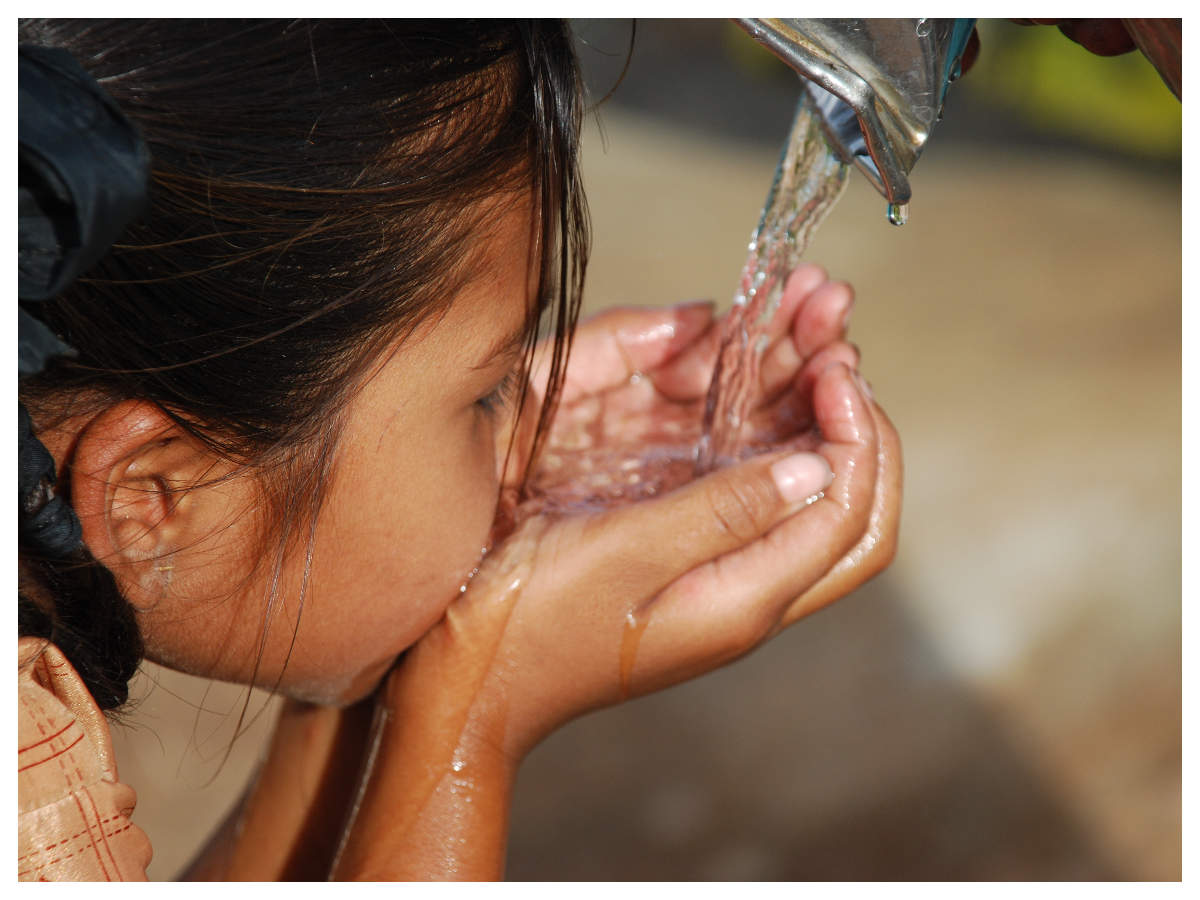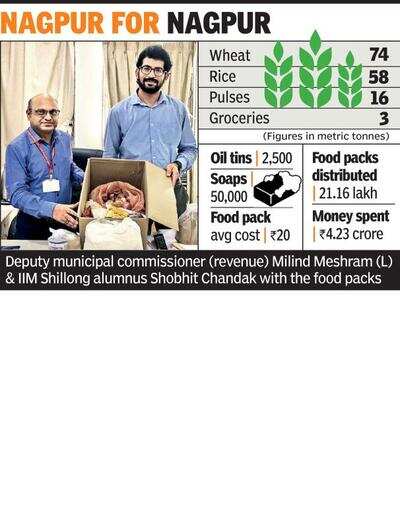
Nagpur: Tirelessly serving the needy for the last two months, the city’s now popular ‘Covid Warriors (CWs)’ comprising NGOs, individuals and institutions may not be aware of the difference they made — not just in the lives of fellow citizens but also in the state exchequer.
Working as an aggregator and moderator, the Nagpur Municipal Corporation (NMC) developed the 'Nagpur Model of Food Security' to connect beneficiaries and service providers. The model has helped Nagpur become self-reliant with the haves supporting the have-nots.
Data recorded under this model show CWs fed 45,000 migrants, beggars, homeless and other stranded people per day since March 26, when the first lockdown started. Another 21,000 food packets were distributed in Shramik Special trains and to migrants passing through Panjra Toll Plaza on the city’s outskirts.
An estimated Rs4.25 crore pooled by the CWs was spent on foodgrains, groceries and other essential items for these people till May 31. Care was taken to also feed well-to-do senior citizens dependent on house helps, pregnant women and persons with disabilities.
Under the model, the NMC — led by civic chief Tukaram Mundhe and other top officials — had formed a CW WhatsApp group having around 65 NGOs, members of civil society and philanthropists who sponsored food grains, groceries, and community kitchens.
The seamless transaction between NGOs and NMC was possible because of the joint efforts of the revenue department and an IIM graduate, who helped the civic body keep track and micro-manage the initiative.
Deputy municipal commissioner (revenue) Milind Meshram, who is nodal officer for the initiative, said maintaining the data helped in increasing efficiency of the food distribution as well as keeping it a transparent affair.
“We have recorded how each penny has been spent, even though the NMC was only coordinating with NGOs and sponsors. Government funds are already strained in containing the pandemic, hence we developed this unique model to conserve them,” Meshram said
“Fortunately, the public-private-people partnership (PPPP) model clicked, unlike in other social initiatives like river cleaning or tree plantation,” he added.
Meshram attributed the overwhelming response from citizens to municipal commissioner Mundhe’s public image. “People repose faith in him (Mundhe),” he said.
Soon after receiving the government resolution (GR) for providing food to all, Mundhe, additional municipal commissioner Ram Joshi and Meshram had roped in Shobhit Chandak, an IIM Shillong alumnus, as project manager.
Meshram said Chandak closely monitored the requirements of different areas and sets of people living in shelter homes. Rarely were there any complains about food, he added.
Chandak said he had developed the model based on Rajasthan’s Bhilwara model, where the administration strictly implemented lockdown and kept people well-fed.
Nagpur contributes for Nagpur
Wheat 74
Rice 58
Pulses 16
Groceries 3
(Figures in metric tonnes)
Oil tins: 2,500
Soaps: 50,000
Food pack average cost: Rs20
Food packs distributed: 21.16 lakh
Money spent: Rs4.23 crore
Working as an aggregator and moderator, the Nagpur Municipal Corporation (NMC) developed the 'Nagpur Model of Food Security' to connect beneficiaries and service providers. The model has helped Nagpur become self-reliant with the haves supporting the have-nots.
Data recorded under this model show CWs fed 45,000 migrants, beggars, homeless and other stranded people per day since March 26, when the first lockdown started. Another 21,000 food packets were distributed in Shramik Special trains and to migrants passing through Panjra Toll Plaza on the city’s outskirts.
An estimated Rs4.25 crore pooled by the CWs was spent on foodgrains, groceries and other essential items for these people till May 31. Care was taken to also feed well-to-do senior citizens dependent on house helps, pregnant women and persons with disabilities.
Under the model, the NMC — led by civic chief Tukaram Mundhe and other top officials — had formed a CW WhatsApp group having around 65 NGOs, members of civil society and philanthropists who sponsored food grains, groceries, and community kitchens.
The seamless transaction between NGOs and NMC was possible because of the joint efforts of the revenue department and an IIM graduate, who helped the civic body keep track and micro-manage the initiative.
Deputy municipal commissioner (revenue) Milind Meshram, who is nodal officer for the initiative, said maintaining the data helped in increasing efficiency of the food distribution as well as keeping it a transparent affair.
“We have recorded how each penny has been spent, even though the NMC was only coordinating with NGOs and sponsors. Government funds are already strained in containing the pandemic, hence we developed this unique model to conserve them,” Meshram said
“Fortunately, the public-private-people partnership (PPPP) model clicked, unlike in other social initiatives like river cleaning or tree plantation,” he added.
Meshram attributed the overwhelming response from citizens to municipal commissioner Mundhe’s public image. “People repose faith in him (Mundhe),” he said.
Soon after receiving the government resolution (GR) for providing food to all, Mundhe, additional municipal commissioner Ram Joshi and Meshram had roped in Shobhit Chandak, an IIM Shillong alumnus, as project manager.
Meshram said Chandak closely monitored the requirements of different areas and sets of people living in shelter homes. Rarely were there any complains about food, he added.
Chandak said he had developed the model based on Rajasthan’s Bhilwara model, where the administration strictly implemented lockdown and kept people well-fed.
Nagpur contributes for Nagpur
Wheat 74
Rice 58
Pulses 16
Groceries 3
(Figures in metric tonnes)
Oil tins: 2,500
Soaps: 50,000
Food pack average cost: Rs20
Food packs distributed: 21.16 lakh
Money spent: Rs4.23 crore

Coronavirus outbreak
Trending Topics
LATEST VIDEOS
City
 Watch: Video proof of Pak diplomat spying with a decoy sent by the Indian Intelligence Agency
Watch: Video proof of Pak diplomat spying with a decoy sent by the Indian Intelligence Agency 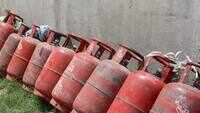 Unlock 1.0: Non-subsidized LPG gas price hiked by Rs 11.50 in Delhi
Unlock 1.0: Non-subsidized LPG gas price hiked by Rs 11.50 in Delhi 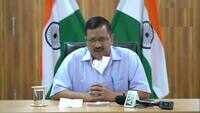 Covid-19 crisis and lockdown: Delhi CM Arvind Kejriwal seeks public suggestions
Covid-19 crisis and lockdown: Delhi CM Arvind Kejriwal seeks public suggestions 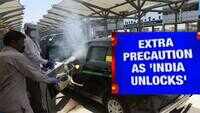 India unlocks: Guidelines issued to taxi services operating to and from Delhi Airport
India unlocks: Guidelines issued to taxi services operating to and from Delhi Airport
More from TOI
Navbharat Times
Featured Today in Travel
Quick Links
Kerala Coronavirus Helpline NumberHaryana Coronavirus Helpline NumberUP Coronavirus Helpline NumberBareilly NewsBhopal NewsCoronavirus in DelhiCoronavirus in HyderabadCoronavirus in IndiaCoronavirus symptomsCoronavirusRajasthan Coronavirus Helpline NumberAditya ThackerayShiv SenaFire in MumbaiAP Coronavirus Helpline NumberArvind KejriwalJammu Kashmir Coronavirus Helpline NumberSrinagar encounter
Get the app
